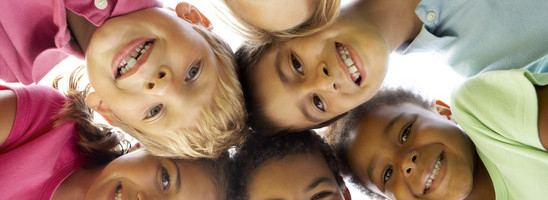Socialization you could say is how a child interacts with their peers. There are many definitions, but in school, socialization mostly involves how children play and get along with each other. We think of recess when considering socialization. We wonder how much socialization children miss when they don’t get recess.
Public schools can go a long way towards bringing children together and socialization seems critical for society in general, but some parents don’t like socialization in public schools. They don’t believe it’s necessary for good schooling.
One of the criticisms of homeschooling is that children might not get opportunities to socialize, but most parents I know who home school work extra hard to get their children to interact with others. Some home schools create networks where students get to know others who learn mostly at home.
With current educational reforms there are concerns that children in public school don’t get to socialize like they should.
What do parents like or dislike about socialization in public schools?
Negativity Surrounding Socialization in Public Schools
Here are some reasons why parents don’t like an emphasis on socialization in public schools.
- They think schooling should be more about academics and that socialization is overrated.
- Parents might want to let churches teach tolerance and understanding.
- Some fear students might be distracted by too much socializing.
- Children in school mingle mostly with those in their age group which is considered a drawback by some.
- School socializing might involve cultural trends of which parents disapprove.
- Parents indicate that an uncaring teacher, by embarrassment, could ruin a child’s chances of making friends.
- Some fear a humanistic agenda in public schools which conflicts with certain religious beliefs.
- Others believe that when schools focus on socialization they are failing in other areas.
- Parents might also be concerned about the socialization problems public schools face. See below.*
Positivity Surrounding Socialization in Public Schools
Parents who look to public schools, to help students with socialization, approve for the following reasons.
- Children learn about others who may be different than themselves.
- Students learn about the world and other cultures.
- Teen academic success could be connected to peer acceptance involving socialization (Lynch, Lerner, & Leventhal, 2013).
- Children might gain skills for their future occupation and working with others.
- Socialization in school might lead to students being more politically aware later in life (Merelman, R.M. & G. King, 1986).
- Extracurricular and sports activities are valued.
- Many parents appreciate the diversity of children mixing together no matter their backgrounds.
- Children who come from second language households benefit from socialization (Cervantes, C. A. & D.R. Perez-Granados).
- Children learn cognitive skills as they socialize.
- Some believe socialization in public school strengthens American democracy.
- Children learn negotiation skills, problem solving and self-control.
Socialization Problems in Public School that Need to be Addressed*
These are problems implementing good socialization programs in public schools.
- Bullying during socialization can have a long term negative effect on children.
- Public schools focus too much on high-stakes testing for good socialization to take place.
- Many public schools deny students breaks or recess.
- Due to education reform, many public schools do little socialization.
- Some schools insist on student silence for most of the day including lunch breaks.
- Racial prejudice can affect how students socialize.
- Children with special needs require better peer group interactions.
- Public schools that do not provide breaks or recess harm children.
- Children spend too much time online and not enough time with face-to-face contacts.
How students socialize in school will impact how they socialize as adults. Socialization is critical to children at every developmental level. Schools must provide ample time for students to socially interact.
References
Boorman, G. “Americans Think School Is For Socializing.” The Federalist. June 16, 2014.
Cervantes, C. A. & D.R. Pérez-Granados. 2002. “Language Socialization and Learning in Mexican-Descent Families: An Introduction. Hispanic Journal of Behavioral Sciences. 24(2) 107 – 113.
Lynch, A., R. Learner, & T. Leventhal. 2013. “Adolescent Academic Achievement and School Engagement: An Examination of the Role of School-Wide Peer Culture.” Journal of Youth & Adolescence, 42(1) 6-19m 14.
Merelman, R.M. & G. King. 1986. “The Development of Political Activists. Toward A Model of Early Learning.” Social Science Quarterly. 67. 473 – 490.
Pearson, Amy. “How School Impacts a Child’s Socialization.” Global Post.
Pearson, A. “How School Impacts a Child’s Socialization.” Global Post.

Now that my son is homeschooled, he actually socializes more, both with neurotypical children and with children with disabilities like his (Aspergers). The homeschool community is much more accepting of “differences” than the public school ever was! He is involved in a “Minecraft Club” and takes classes at the local co-op in American Sign Language. This fall he will take a yoga class and participate in a homeschool choir. He has more friends than he did in school and is happier. He has also made huge leaps academically. He is now a third grader and he is reading at a fifth grade level. When I pulled him to homeschool, he was a year behind. Students with disabilities had enough challenges before Common Core. If a parent is afraid to homeschool a special needs child, they should ask themselves this question: “Could you do any worse given the current environment of public school?”
Thank you, Monica. It sounds like you are doing everything right! I’m sorry public schools didn’t provide what your son needed, but it sounds like he is thriving!
And you posed a great question!
Great article! Thanks for posting.
This article helped me with my 5 paragraph essay my grade was depending on.